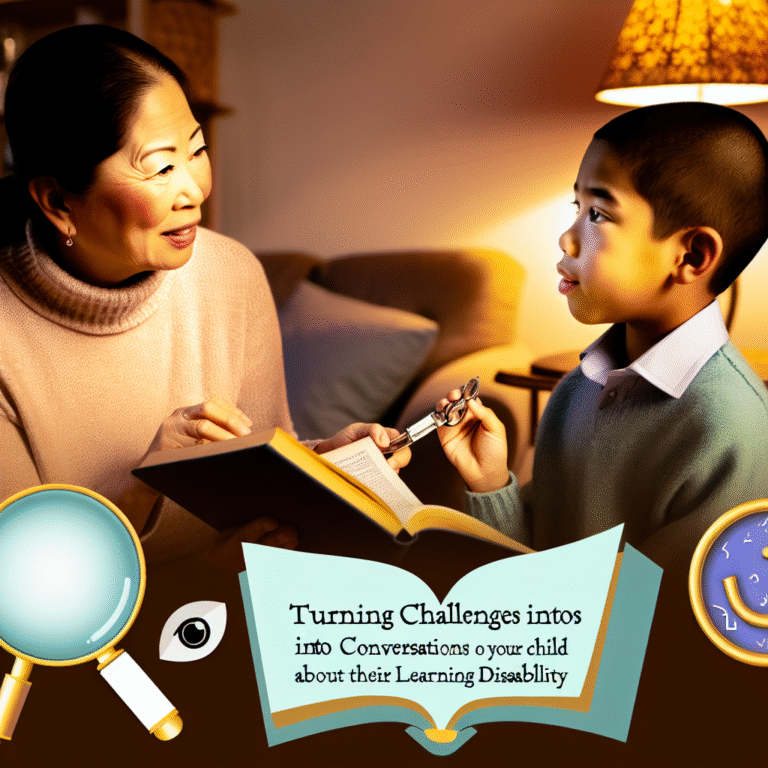
Elevate Your EQ: Essential Steps to Enhance Emotional Intelligence Daily
Introduction
In today’s fast-paced world, the ability to understand and manage emotions—both our own and those of others—is more crucial than ever. Welcome to the journey of emotional intelligence, or EQ, where the skills to navigate our feelings and relationships can significantly impact personal and professional success. Elevating your EQ is not just a personal enhancement; it’s a life skill that can lead to healthier relationships, improved communication, and greater overall satisfaction. In this article, we will explore simple steps to enhance emotional intelligence daily, helping you become a more empathetic and effective person in your everyday interactions.
Understanding Emotional Intelligence
What is Emotional Intelligence?
Emotional intelligence refers to the ability to perceive, evaluate, and respond to emotions—both those you experience and those of others. It consists of five key components:
- Self-awareness: Recognizing your own emotions and how they affect your thoughts and behavior.
- Self-regulation: Controlling or redirecting disruptive emotions and impulses.
- Motivation: Harnessing emotions to pursue goals with energy and persistence.
- Empathy: Understanding the emotional makeup of other people and treating them according to their emotional reactions.
- Social Skills: Building rapport with others to move them in desired directions.
Each component contributes to a robust emotional intelligence, allowing for a healthier interaction with the world around us.
Why Elevate Your EQ?
Emotional intelligence is not just a buzzword; it plays a fundamental role in various aspects of life, including leadership, teamwork, and personal relationships. Research indicates that individuals with high EQ tend to have better mental health, effective communication skills, and superior leadership abilities.
Consider this: Leaders with high emotional intelligence can manage stress better and foster positive workplace cultures, leading to increased employee satisfaction and productivity. In short, elevating your EQ can make you a more effective leader, a better friend, and a more compassionate human being.
Daily Steps to Elevate Your EQ
1. Practice Self-Reflection
Why It’s Important
Self-reflection is a critical first step in elevating your EQ. It enables you to understand your emotional responses and acknowledge how they influence your behavior and decisions.
How to Implement
- Journaling: Set aside 10 minutes each evening to write about your emotional experiences throughout the day. Reflect on times when you reacted strongly and explore what triggered those emotions.
- Ask for Feedback: Engage with trusted friends or colleagues and ask for constructive feedback about your emotional responses and behaviors.
2. Develop Mindfulness
Understanding Mindfulness
Mindfulness involves being present in the moment without judgment. It can help you become more aware of your emotional states as they occur.
Daily Mindfulness Exercises
| Exercise | Duration | Description |
|---|---|---|
| Breathing Focus | 5 mins | Focus solely on your breath; notice each inhale and exhale. |
| Walking Meditation | 10 mins | Walk slowly while focusing on the sensations of your feet. |
| Senses Check | 5 mins | Identify and acknowledge five things you see, hear, and feel. |
3. Cultivate Empathy
The Power of Putting Yourself in Others’ Shoes
Empathy is crucial for building meaningful connections. By understanding others’ feelings, you can respond more effectively in various situations.
Daily Empathy Practices
- Active Listening: When conversing, focus entirely on the speaker. Ask open-ended questions and summarize what you hear to ensure understanding.
- Perspective-Taking: Spend time reflecting on other people’s viewpoints, especially those who may hold different opinions than you.
4. Enhance Your Communication Skills
The Importance of Effective Communication
Good communication skills are vital in expressing your emotions constructively and in understanding others’ emotional cues.
Strategies to Improve Communication
| Strategy | Description |
|---|---|
| Use "I" Statements | Express your feelings without blaming another person (e.g., “I feel…”). |
| Maintain Eye Contact | Establishing eye contact shows you’re engaged and present during conversations. |
5. Manage Stress Effectively
Connection Between Stress and Emotions
Stress can adversely affect your emotional responses. Learning to manage stress is essential for maintaining emotional intelligence.
Stress Management Techniques
- Regular Exercise: Aim for at least 30 minutes a day. Physical activity can significantly enhance mood and reduce stress levels.
- Mindfulness Practices: Engage in yoga or meditation to help reduce stress and improve emotional regulation.
6. Set Intentions for Your Emotions
The Power of Intention
Setting daily intentions can help you cultivate a positive emotional environment. By actively choosing how you want to feel, you can guide your emotional responses throughout the day.
How to Set Intentions
- Morning Routine: Each morning, identify one emotion you want to cultivate (e.g., joy, calmness) and visualize how you can embody that throughout the day.
7. Seek Continuous Learning
Committing to Growth
Elevating your EQ is a lifelong journey. Investing time in learning can provide new skills and perspectives.
Resources for Learning
- Books: Consider reading titles like "Emotional Intelligence 2.0" by Travis Bradberry and Jean Greaves or "Dare to Lead" by Brené Brown.
- Online Courses: Websites like Coursera and Udemy offer courses specifically related to emotional intelligence.
Case Studies in Emotional Intelligence
Case Study 1: Google’s Project Oxygen
Overview:
Google’s Project Oxygen aimed to identify what makes a great manager. They found that emotional intelligence was more important than technical skills.
Relevance:
This case illustrates that in the corporate world, EQ matters. Leaders with high emotional intelligence foster better teams and increase productivity.
Case Study 2: The Search for a New CEO at Satya Nadella’s Microsoft
Overview:
Upon becoming CEO, Satya Nadella shifted Microsoft’s culture to one of empathy and collaboration.
Relevance:
Nadella’s leadership style emphasizes the role of EQ in leadership; encouraging a culture of empathy fueled Microsoft’s resurgence.
Case Study 3: Brené Brown’s Research on Vulnerability
Overview:
Brené Brown’s studies reveal how vulnerability and emotional connection are essential for courage, creativity, and belonging.
Relevance:
By understanding and embracing our emotions, we pave the way for deeper connections, which enhances our emotional intelligence.
Conclusion
Elevating your EQ is not an overnight task; it requires ongoing effort and dedication. By implementing simple daily practices, you can transform your emotional landscape, leading to improved relationships, enhanced communication, and a richer life experience. Embrace the journey of emotional intelligence, and remember: every small step you take contributes to a larger personal growth narrative. Let’s commit to elevating our EQ daily—your future self will thank you!
FAQs
1. What are the benefits of improving emotional intelligence?
Improving emotional intelligence enhances relationship-building, improves communication skills, boosts leadership abilities, and increases self-awareness, leading to overall improved mental health.
2. Can emotional intelligence be developed later in life?
Absolutely! Emotional intelligence can be improved at any age through consistent practice, learning, and feedback.
3. Does high emotional intelligence guarantee success?
While high EQ is a strong predictor of success in many areas, it isn’t the only factor. Skills, experience, and opportunities also play significant roles.
4. How can I measure my emotional intelligence?
Various assessments, such as the Emotional Quotient Inventory (EQ-i), can help you measure your emotional intelligence and identify areas for improvement.
5. What is the difference between emotional intelligence and IQ?
Emotional intelligence refers to the ability to recognize and manage emotions, while IQ measures cognitive abilities and intellect. Both are important but serve different functions in personal and professional environments.
By truly understanding and implementing these steps, you will surely elevate your EQ and enrich your interactions, personal well-being, and professional life. Remember, enhancing emotional intelligence is a journey—so take it one step at a time!









